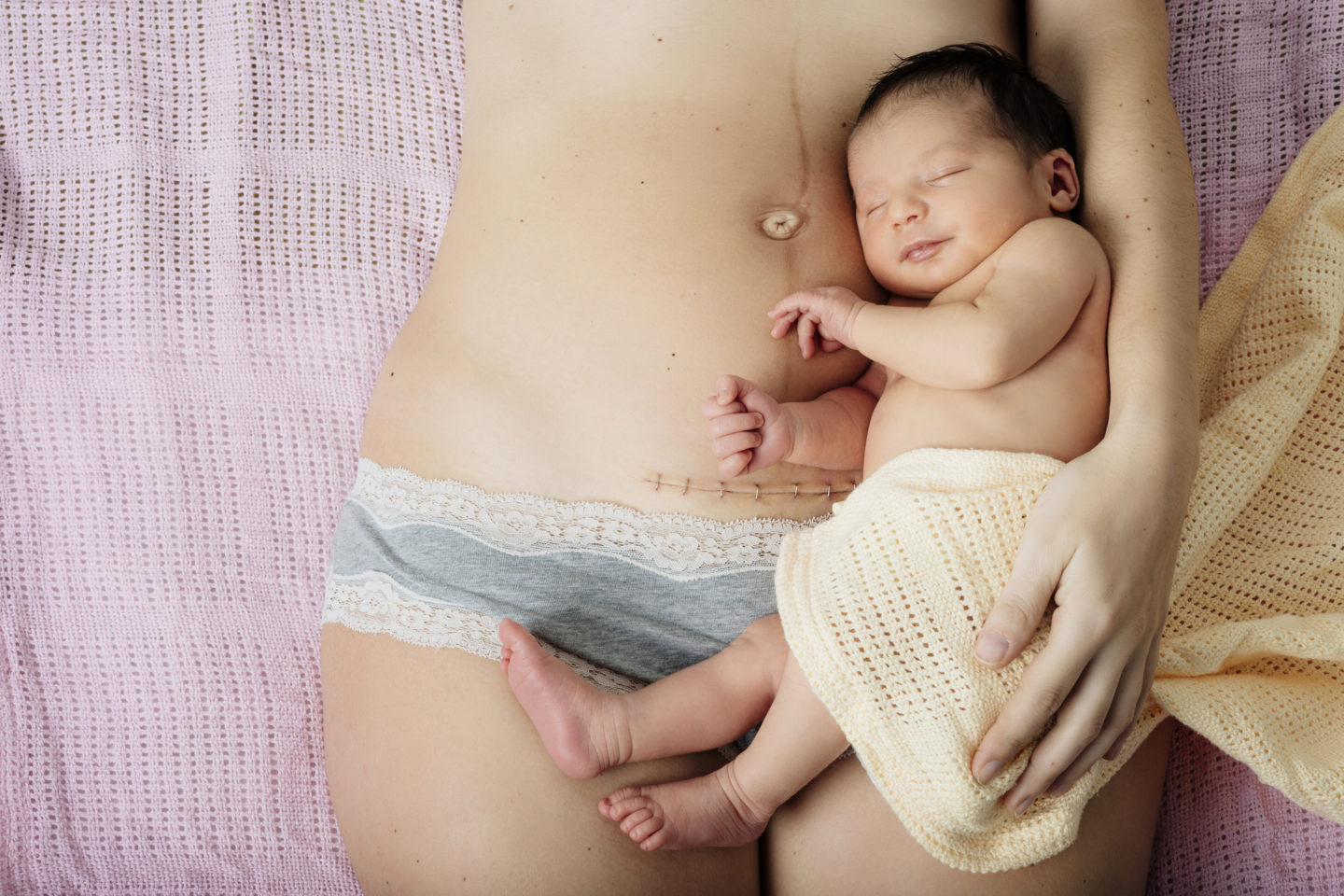Let’s start thinking bigger about what makes a “good birth.”
From the moment pregnancy takes hold (and let’s face it, even before then), everyone has an opinion about your impending baby and what you should and should not do. Then childbirth happens and while the hope is that unwarranted comments would end there, they don’t. The next round centers on how you did it and why that way — details that are intimately yours. Epidural? Water birth? Hypnobirth? C-section?
If you’ve had a c-section, or know someone who has, people may have commented on it, and in ways that are less than helpful or kind. Folks who have undergone c-sections have heard everything from “it’s so much easier,” to “you didn’t really give birth,” to the assumption that they were “too posh to push.” The reality, of course, is that, like most things, a c-section is much more complicated than we think, but the procedure is deeply stigmatized.
C-sections generally occur when there’s a problem during labor, which was the case for Leah. “My second child was also way up in my ribs like my first had been,” she said. “I didn’t think twice about a c-section because I knew my body was not going to be any more effective at pushing out this second child.”
Joanne delivered her premature twin boys via emergency c-section, and was unconscious for the entire procedure. She was disappointed that she wasn’t able to have the natural birth she’d always imagined having, but explains, “my doctor was amazing about stressing the importance of getting the babies out however it happens instead of trying for a risky birthing experience. I 100% know that being put under was medically necessary, so I’m not upset about it, just disappointed that it had to happen that way.”
In spite of the fact that we know intellectually that c-sections are major surgery, which come with risks and in general have a longer recovery time than a vaginal birth, the myth persists that they are “easy,” and therefore, somehow an inferior form of childbirth.
“I had had women tell me that they thought a c-section would be easier and less scary than natural birth, or birth with an epidural,” said Liz. “I remember that the c-section was the longest I’d ever seen my mom in bed, unable to take care of us. I guess that with that experience, I was surprised to hear that women would opt for major abdominal surgery over a natural birth.” Liz planned on delivering her daughter naturally, but her body had other ideas. Her daughter was born via c-section, with Liz under full anesthesia. “Her birth was disappointing,” Liz told me. “But it was the right thing to do, and she did great.”
The pressure to justify having a c-section can be intense and unrelenting. Even after she’d justified it to herself, Liz still found herself reciting reasons for undergoing the procedure. “If you say you got a c-section, the first question everyone asks is “why?” or they just ask to make sure you had a “good” reason for having done it. You never hear “Oh, I had a c-section” and leave it at that.”
It is important to point out that not every c-section is a harrowing experience, but the assumption is that it must be, because anything less than a natural, vaginal birth must be unacceptable to the one birthing. R had her twin daughters via c-section, and when she was pregnant with her son, she had a midwife offer her the information of a therapist, who the midwife said, would be able to help her process the fact that she’d had a c-section.
“I never asked for this and I told her I was totally fine with a c-section and would be with another one,” R said. “She gave me the person’s card anyway.”
Megan Davidson, a doula in Brooklyn, New York, who has assisted at more than 500 births, has some recommendations for dealing with c-section shaming. First, come to terms with your own story. It’s okay to have complicated feelings about your c-section, but do what you can to stop punishing yourself. Next, Davidson urges folks to come up with a script that involves empowering language and definitely not apologizing for your experience. And finally, find a community who can support you.
Davidson proposes that instead of shaming women for their c-sections (emergency or otherwise), we expand our definition of what a “good birth” is. “A positive birth experience is one that you feel good about, which honors you and your baby, and during which you got what you needed,” she said.




comments